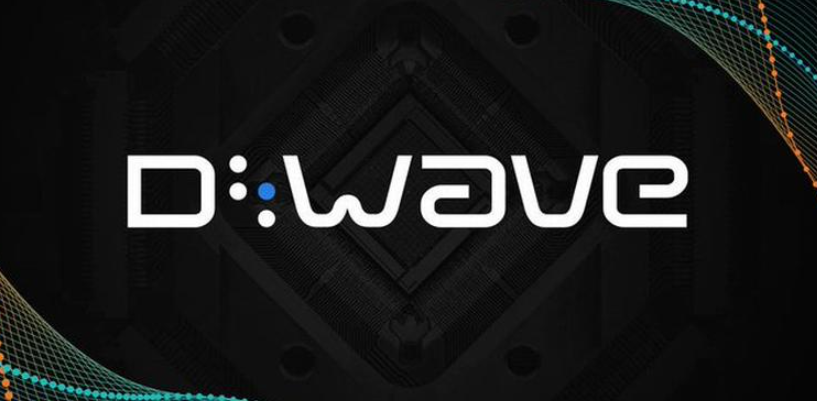So what are the best 5 quantum computing stocks to buy right now? Well, not so fast, I won’t give you the list right away. Let’s start with defining what we are talking about here!
Quantum computing, a term we are hearing everywhere. But what the hell is it? Well, if I had to explain it to my 5-year-old, I would define it as follows: “Imagine you have a super-smart toy that can think of all the possible ways to solve a puzzle at the same time, instead of trying one by one. That’s what quantum computing is like!”.
Quantum computing is rapidly evolving from theoretical science to practical application, and companies leading this transformation offer substantial investment opportunities. Here are our top five stocks in quantum computing to consider, along with an overview of their operations, competitive advantages, financial health, and growth projections. Don’t forget that this is only our opinion and that it is definitely not financial advice (do your own dd please). Also, don’t forget that these stocks are long term play. Why? Because we are still years away from full public availability but the future leaders of this industry will probably become monster companies.
Don’t forget to read until the end because we give you our favorite pick in the conclusion!
1. IBM – Market Cap of $206b
- Who They Are: everybody has heard of them and I am sure you didn’t expect to see their name on this list! IBM is a pioneer in the quantum computing space, with a history of technological innovation dating back over a century. Their quantum computing division, IBM Quantum, is a leader in both hardware and software.
- What They Do: IBM develops quantum hardware, such as the IBM Quantum System One, and offers cloud-based quantum computing services through IBM Quantum Experience.
- Moat: IBM’s competitive advantage lies in its integrated ecosystem, which combines quantum hardware, cloud services, and an extensive developer community. Their partnerships with universities and corporations further bolster their lead in research and application.
- Financials: IBM reported $60.5 billion in revenue for FY 2024, with strong cash flow from its legacy businesses funding quantum research. Since it’s a mature company and profitable, they have a big pile of cash that they can allocate to their quantum project. This is a huge advantage in comparison to other companies of this list
- Projections: Analysts predict IBM Quantum’s revenue to grow at a compound annual growth rate (CAGR) of 20-25% as quantum computing adoption accelerates.
2. Alphabet Inc. (Google) – Market cap of $2.38T
- Who They Are: We don’t have to introduce them anymore. Alphabet, the parent company of Google, is a tech giant with diverse interests, including quantum computing through Google Quantum AI.
- What They Do: Google Quantum AI focuses on developing quantum processors and algorithms to tackle problems in AI, materials science, and more.
- Moat: Google’s expertise in artificial intelligence and massive computational resources give it a unique edge in integrating quantum computing with other technologies.
- Financials: Alphabet’s revenue in FY 2024 was $280 billion, with a strong R&D allocation to emerging technologies like quantum computing. Like IBM, they have enough cash on hands to finance the next decade of quantum projects!
- Projections: Google’s quantum division is expected to play a crucial role in next-generation AI, driving significant long-term growth. They will probably play a major role in the quantum revolution. But since it’s already such a big company, the upside potential is smaller than other names of this list (but also less risky).

3. Rigetti Computing – Market cap of $2.8b
- Who They Are: Rigetti Computing is a specialized quantum computing company founded in 2013 and headquartered in Berkeley, California.
- What They Do: Rigetti develops full-stack quantum computing systems and provides quantum cloud services.
- Moat: Rigetti’s proprietary hybrid quantum-classical computing approach differentiates it from competitors. Their partnerships with government agencies and enterprises strengthen their market position.
- Financials: Although Rigetti is a smaller player, their recent financial reports indicate consistent revenue growth, supported by strategic partnerships and funding. But their revenues (around $12m) are still tiny next to their market cap which makes this investment very risky and based on a lot of promises
- Projections: Analysts forecast a 30% annual growth rate for Rigetti as demand for specialized quantum solutions rises.

4. IonQ – Market cap of $6.5b
- Who They Are: IonQ is a leading quantum computing company specializing in trapped-ion technology. This is probably the most known name in the quantum space, you surely already heard of them!
- What They Do: IonQ’s trapped-ion quantum computers offer high fidelity and scalability, making them suitable for solving complex problems in finance, logistics, and pharmaceuticals.
- Moat: IonQ’s hardware advantage lies in its unique trapped-ion approach, which provides superior error rates and scalability compared to other technologies.
- Financials: With $100 million in revenue for FY 2024, IonQ is transitioning from a research-focused startup to a commercially viable company. They Price/Sales ratio is a bit better than Rigetti but we are still at a very high level.
- Projections: IonQ’s revenue is expected to grow at over 40% annually as enterprise adoption of quantum computing accelerates.

5. D-Wave Quantum Inc. – Market cap of $1.6b
- Who They Are: D-Wave is a pioneer in quantum annealing, a specific type of quantum computing optimized for solving optimization problems. This is the smaller company on our list
- What They Do: D-Wave provides quantum annealing systems and cloud-based services, targeting industries like logistics, manufacturing, and cybersecurity.
- Moat: D-Wave’s specialization in quantum annealing sets it apart, offering solutions tailored for real-world optimization challenges.
- Financials: While D-Wave operates at a smaller scale, it has a steady stream of revenue from enterprise clients and government contracts of close to $10m.
- Projections: D-Wave’s market is expected to grow at a CAGR of 25%, driven by increasing use of quantum annealing in logistics and operations.

Conclusion
Quantum computing is still in its early stages, but these companies are well-positioned to capitalize on its transformative potential. While investing in quantum computing stocks carries risks due to the nascent nature of the industry, the long-term growth prospects make them compelling additions to a forward-looking portfolio. Are they the next “big thing” after AI? Many people think so, which explains why many of these stocks are priced with very high multiples.
What about our favorite pick in this list? Well, without hesitation, Alphabet has the cash and the engineers to be the future leader of this industry. So we are betting on them!
This was The best 5 Quantum Computing Stocks to Buy. What do you think about this list? Tell us!




